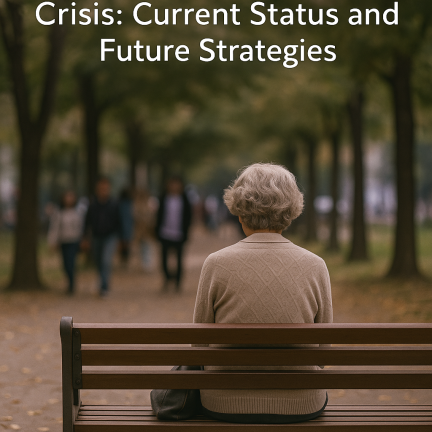South Korea is one of the fastest-aging countries in the world. According to Statistics Korea, as of 2023, 18.4% of the population is aged 65 or older. By 2025, the nation is projected to enter a “super-aged society,” where more than 20% of the population is elderly. This demographic shift isn’t just about age—it has widespread impacts on the economy, welfare system, and labor market.
Main Causes of Aging
- Declining Birth Rate
South Korea’s total fertility rate stood at just 0.72 in 2023—the lowest in the world. This sharp decline in the number of births is a primary driver behind the rapid increase in the proportion of elderly people. - Advancements in Healthcare and Increased Life Expectancy
Improvements in medical services have significantly extended life expectancy, naturally increasing the elderly population.
Societal Challenges Caused by Aging
- Labor Shortages
The working-age population (ages 15 to 64) is shrinking, leading to labor shortages across industries—particularly in small businesses and agriculture. - Strain on Pension and Welfare Systems
With more people becoming eligible for pensions and public welfare benefits, the financial burden on the system is rapidly increasing. There are rising concerns about the long-term sustainability of national pension funds. - Widening Generational Gaps
Younger generations feel the pressure of supporting an aging population, while seniors demand greater welfare and quality of life. This mismatch may lead to growing intergenerational tension.
Government and Societal Responses
- Age-Friendly Policies
The Korean government is investing in job creation for seniors, expanding community care services, and developing elder-care technologies such as service robots. - Improving Labor Market Flexibility
Policies such as raising the retirement age and providing retraining programs are designed to help older adults remain economically active. - Regional Revitalization and Youth Influx Strategies
To counter regional population decline, the government is offering housing and employment incentives to encourage young people to settle in rural areas.
Tasks Ahead for a Sustainable Future
While aging is an inevitable trend, minimizing its negative impact and building a sustainable society will require the following:
- Effective Policies to Boost Birth Rates
Policies such as paid parental leave, financial support for childcare, and flexible work arrangements must be strengthened to reduce the burden of raising children. - Enhancing Quality of Life for Seniors
Beyond survival, older adults should enjoy fulfilling lives through access to cultural, leisure, and health programs. - Fostering Intergenerational Dialogue
Programs that promote communication and cooperation between generations are essential to prevent societal division.
South Korea’s aging population is a complex challenge requiring long-term strategies, sustained public interest, and collective effort.
